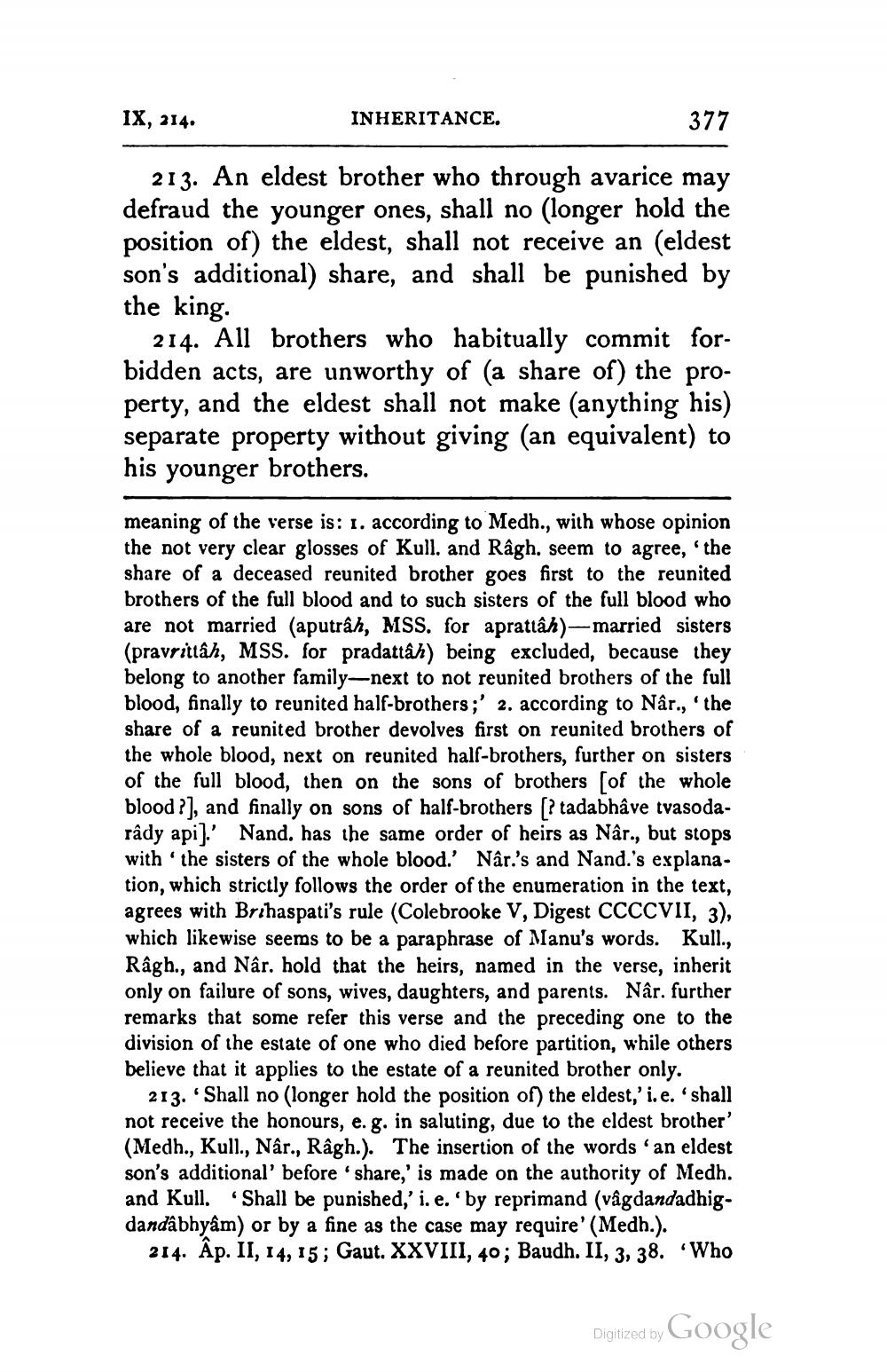________________
IX, 214.
INHERITANCE.
377
213. An eldest brother who through avarice may defraud the younger ones, shall no (longer hold the position of) the eldest, shall not receive an (eldest son's additional) share, and shall be punished by the king.
214. All brothers who habitually commit forbidden acts, are unworthy of (a share of) the property, and the eldest shall not make (anything his) separate property without giving (an equivalent) to his younger brothers.
meaning of the verse is: 1. according to Medh., with whose opinion the not very clear glosses of Kull, and Râgh. seem to agree, 'the share of a deceased reunited brother goes first to the reunited brothers of the full blood and to such sisters of the full blood who are not married (aputrah, MSS. for aprattah-married sisters (pravrittâh, MSS. for pradattâh) being excluded, because they belong to another family-next to not reunited brothers of the full blood, finally to reunited half-brothers;' 2. according to Nâr., 'the share of a reunited brother devolves first on reunited brothers of the whole blood, next on reunited half-brothers, further on sisters of the full blood, then on the sons of brothers of the whole blood ?], and finally on sons of half-brothers (? tadabhâve tvasodarâdy apil.' Nand. has the same order of heirs as Nâr., but stops with the sisters of the whole blood.' Nâr.'s and Nand.'s explanation, which strictly follows the order of the enumeration in the text, agrees with Brihaspati's rule (Colebrooke V, Digest CCCCVII, 3), which likewise seems to be a paraphrase of Manu's words. Kull., Râgh., and När. hold that the heirs, named in the verse, inherit only on failure of sons, wives, daughters, and parents. Nâr. further remarks that some refer this verse and the preceding one to the division of the estate of one who died before partition, while others believe that it applies to the estate of a reunited brother only.
213. Shall no longer hold the position of) the eldest,' i.e. shall not receive the honours, e.g. in saluting, due to the eldest brother' (Medh., Kull., Nár., Râgh.). The insertion of the words an eldest son's additional before share,' is made on the authority of Medh. and Kull. Shall be punished,' i. e. by reprimand (vâgdandadhigdandâbhyâm) or by a fine as the case may require' (Medh.).
214. Ap. II, 14, 15; Gaut. XXVIII, 40; Baudh. II, 3, 38. Who
Digitized by Google




